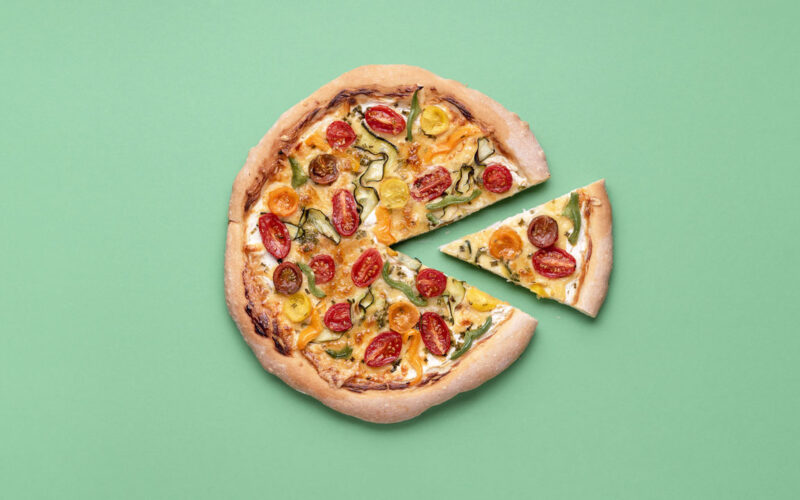Do you have any meals that you find difficult to control yourself around? Continue reading to find out why you feel out of control around food and how you can fix the problem right away.
It is common to feel out of control around particular foods. It could be a specific type of food, like seasonal sweets and snacks. Or there could be a specific food you always overeat without even realizing it.
It can occasionally be annoying and overwhelming to feel out of control. If you are also troubled by this, continue reading to find out why you feel out of control around certain foods and ways to solve this problem.
How are Food and Control related?
Food and self-control always go hand in hand. Although you may feel nothing is common between the two, food and control often become entangled. Let us learn more about the connection between food and self-control in more detail:
Dietary Cycle and Control
Many people follow trending diets and detox to achieve their health or wellness goals. For example, one might wish to lose weight to improve their health. They can enrol in a diet or detox plan, adhere to the instructions, and begin to see the desired outcomes to achieve this. However, some of the regulations soon grow tiresome. They break the guidelines and eat something that isn’t on a diet, detox for a night, or even just one meal.
When they do so, they often feel out of control, as if they have no boundaries and are unstructured. This loss of control frequently triggers a more vigorous, strenuous attempt to regain it, where they return to the diet and detox guidelines and promise to “do better” and “be better” this time.
So you see, the diet cycle is a cycle of control. You often want to rebel and break the constraints diets place on you. And when you finally disregard it, you feel out of control. The lack of control prompts an effort to regain or increase one’s level of control, and the loop goes on.
To be clear, you don’t need to be on a diet or to have tried a particular diet to experience this. Establishing food restrictions, laws, or standards can also start this loop. Now that we know the relationship between control and eating let’s get more specific.
Why do you feel out of control around some food?
The following are a few of the most typical diet-related habits and dispositions that lead to losing control over food. Let us review each one so you can decide which ones might affect how you feel about food.
Limitation of Consumption
People frequently try limiting their consumption of specific foods when making healthier decisions. As a result, you set food regulations. For example, you could decide you won’t eat noodles or pasta anymore.
The moment you set food restrictions, you put yourself up for failure. For example, say you eventually decide to eat pasta after a month or so. When you start eating it, you will feel out of control and eat much more than expected.
Lack of Nutrition
Food serves as the body’s fuel. It nourishes us, enabling us to perform at our peak throughout the day. Our bodies have hormones that signal when we’re hungry and full to ensure we get the nutrition we need.
We experience hungry when we require more food. We experience satiety when we are ready to move on for the time being.
But, as we age and our lifestyles change, we sometimes disregard or repress these body messages. For instance, you may consistently ignore your hunger signals to consume less and lose weight. As a result, there is inadequate nourishment.
So then, what happens when you finally eat after squelching those hunger signals and going for hours without eating? The body revels once more since it is so happy to receive the food it desires! You consequently relinquish all control. You lose the sense of portion size, hunger cues soar, and eat far more than you had planned.
So, you could feel out of control around food if you need more nourishment.
Moralizing Food
Moralizing food is another reason that causes you to lose control of some food. By moralizing food into the good or bad category, we unintentionally elevate the terrible foods we enjoy eating. As a result, those foods become even more tempting. So when you finally eat them again, you lose control and overeat. And then you end up feeling uncomfortable and guilty.
Lack of sufficient fat or protein intake
Many people fail to consume enough protein and fat. Fat and protein contribute to satiety and fullness. Without them, we finish our snacks and meals, still feeling hungry and wanting more.
Without these foods, blood sugar levels can fluctuate all day long. As a result, we may start feeling out of control around food. So even though you may feel like you’re constantly eating, you may always need more.
How to control your feelings around food?
Now that we know how control and food are related, how the diet cycle feeds a cycle of control, and what the most prevalent habits and inclinations cause people to feel out of control around food. So, how do we change this and stop the cycle from happening again?
Developing a healthy relationship with food is essential for breaking the diet cycle of control. A healthy relationship with food lets you enjoy food while balancing the nourishment factor. You can control your feelings around food when you finally find balance and develop a positive relationship with food.

